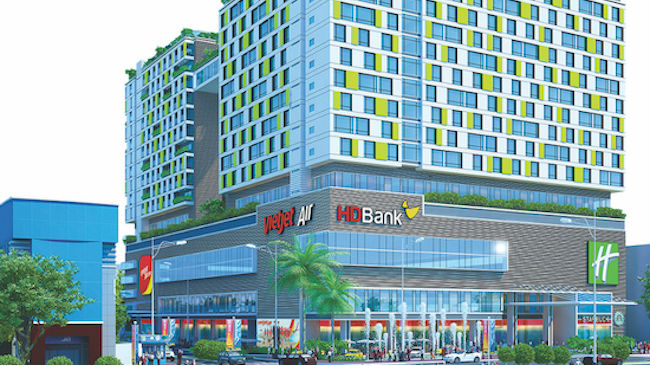When organic becomes an inspiring wellbeing lifestyle
For Tyna Huynh, co-founder of Drinkizz, organic is not just a food choice but a way of life that fosters a deep connection between people, nature and community.




Hybrid properties have been a highlight of the Vietnam real estate market in recent years.

The three main types of hybrid properties – officetel, condotel and hometel – are seen as an innovation in product development by developers, with the aim of being an attractive investment channel for investors.
They have all achieved high sales rates, with most launch events being sold out.
First, a hybrid property is designed, developed and marketed mainly for buy-to-let purposes, providing an alternative investment option for those who would like to diversify their portfolio.
Second, these asset types typically have small-sized units that require a small investment and are therefore available to a broader investor base.
An officetel is a combination of an office and a hotel with a long-term leasehold under 50 years. It is usually part of a podium commercial component of a condominium/apartment project. Since 2014, the Ho Chi Minh City real estate market has welcomed more than 8,000 such units.
In the leasing market, an officetel has two advantages – the unit size is smaller and the address may be used for business certificate registration, which is not possible for traditional condominium units.
In addition, the service charges of an officetel are cheaper than a traditional office building. The target for this model is small start-ups and tenants with limited budgets.
Meanwhile, a condotel is a cross between a condominium and a hotel with a long-term leasehold under 50 years, compared to the hometel, which is freehold. The management system of both is usually a merger of a high-end hotel and a serviced apartment complex with multi-ownership. Owners might live in and enjoy the internal services and amenities or re-lease.
Condotels are mostly seen along the coast or in tourism destinations and are operated by reputable hotel operators, while hometels are regularly located in city centres – so far, they have been seen on the Hanoi and Danang real estate market – and operated by the owners.
Hybrid property investors face their own set of challenges. The legal framework covering hybrid properties in Vietnam is unstable and has many gaps, leading to increased investor risk.
Typically, an officetel exists together with a traditional condominium component and this can lead to difficulty in project management.
Moreover, developers often take advantage of this situation to change the commercial component of the project into an officetel complex for a quick return on capital.
In this situation, developers and investors profit, but residents and tenants do not, due to the reduced facilities and amenities.
An increasing supply of hybrid property is expected to enter the market. This makes it necessary for the government to provide a complete legal framework to ensure that developers moderate their profits and balance their projects with the needs of both residents and buyers, and control supply carefully to avoid excess.
For Tyna Huynh, co-founder of Drinkizz, organic is not just a food choice but a way of life that fosters a deep connection between people, nature and community.
Embracing respectful workplaces could very well be the key to unlocking a more prosperous future for Vietnam's garment industry.
Vietnamese businesses have had a long journey with great achievements, and this path will continue and blossom in years to come.
While some jobs are expected to be replaced by emerging AI applications, the technology is broadly seen as a catalyst for positive transformation in the workforce.
The energy transition is bringing forth new challenges, particularly in refining financial systems.
Alex Hambly talks about investment opportunities in Vietnam following his appointment as chief investment officer (CIO) of VinaCapital.